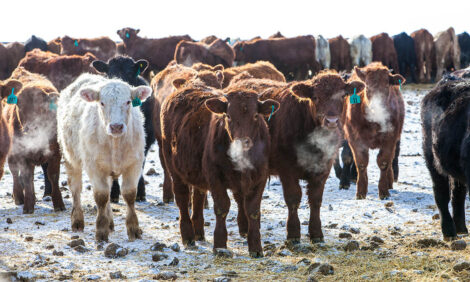



Australia to Face Competition For Key Markets
AUSTRALIA - Interesting trade dynamics are in store for the US and Australian beef sectors, as markets vie for custom in 2014.This week, the Department of Agriculture Fisheries and Forestry predicted a ‘promising outlook’ for Australian farm products, while for US beef, although less pessimistic than it was, the forecast remains lower for 2014.
On the one hand, Australia's beef and veal exports are tipped to reach a record 1.1 million tonnes swt, growing 12 per cent in value. On the other, analysts see competition in key markets arising from US and Brazil.
Following Japan’s 30 months of age rule introduction in February, the US has capitalised on opportunities to access the Japanese market, pushing Australian beef out, according to the Australian Bureau of Agricultural and Resource Economics and Sciences (ABARES) quarterly agricultural commodities outlook.
Consequently, analysts predict Australian exports to Japan to fall six per cent.
Further problems face Australia in the form of diplomatic tensions with Indonesia, which could result in cattle imports being halted.
Phone tapping accusations reported in the media could lead to a limited number of cattle permits being distributed to Australia, unless Australia reacts with a sufficient diplomatic response.
This could leave Brazil as a new supplier, as Indonesia begins to assess alternative sources.
In contrast to diplomatic struggles, the ABARES report outlined some markets that would develop in 2014, such as the US manufacturing market.
This follows US production concerns after cow liquidation amid high feed prices forage scarcity through 2012. The Organisation for Economic Cooperation and Development has forecast US beef production and export dips in the coming year.
Similar forecasts were given in the latest World Agriculture Supply and Demand Estimates report from the US Department of Agriculture, although not as low as previous reports, at 11.02 million tonnes cwt in 2014.
Where Australia looks set to get the better of the US is in the Republic of Korea. The ABARES report explained that higher US beef prices would allow a five per cent rise in shipped weight beef.
The report added: “The decline in tariffs imposed on imports of US beef has been largely offset by higher US beef prices.
“The effect of the Korea–United States Free Trade Agreement on the relative shares of Korean beef imports has so far been minimal.
China is also expected to buy more Australian beef this year to satisfy expanding demand. In total, 160,000 tonnes more beef is predicted to be shipped to China, a 74 per cent increase.
Michael Priestley
News Team - Editor
Mainly production and market stories on ruminants sector. Works closely with sustainability consultants at FAI Farms



